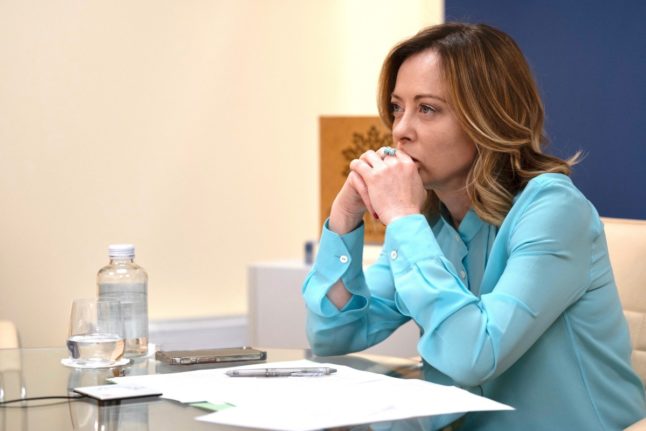The strike comes after Albanian Prime Minister Edi Rama — who is close to Meloni — called a top RAI editor to complain about a television report into Italy’s controversial migration deal with his country.
The Usigrai trade union called the strike from May 6 to May 7 saying talks with management had failed to address their concerns.
It cited numerous issues, including staff shortages and contract issues, but in first place was “the suffocating control over journalistic work, with the attempt to reduce RAI to a megaphone for the government”.
It had already used that phrase to object to what critics say is the increasing influence over RAI by figures close to Prime Minister Meloni, who leads Italy’s most right-wing government since World War II.
READ ALSO: Italy marks liberation from Fascism amid TV censorship row
However, another union of RAI journalists, Unirai, said they would not join what they called a “political” strike, defending the return to “pluralism” at the broadcaster.
Funded in part by a licence fee and with top managers long chosen by politicians, RAI’s independence has always been an issue of debate.
But the arrival in power of Meloni — leader of the far-right Brothers of Italy party, who formed a coalition with Matteo Salvini’s far-right League party and the late Silvio Berlusconi’s right-wing Forza Italia — redoubled concerns.
Tensions erupted at the weekend amid accusations RAI censored a speech by a leading writer criticising Meloni ahead of Liberation Day on April 25, when Italians mark the defeat of Fascism and the Nazis at the end of World War II.
Both RAI’s management and Meloni have denied censorship, and the premier posted the text of the monologue on her social media.
In another twist, Albania’s premier confirmed Thursday he called senior RAI editor Paolo Corsini about an TV report on Sunday into Italy’s plans to build two migration processing centres on Albanian territory.
Rama told La Stampa newspaper the report was “biased” and contained “lies” – adding that he had not raised the issue with Meloni.
The Report programme claimed the costs of migrant centres, which are under construction, were already “out of control” and raised questions about criminals benefiting from the project.



 Please whitelist us to continue reading.
Please whitelist us to continue reading.
Regardless of the actual facts that are surely buried somewhere in the underlying controversy, I find interesting the language used by AFP to describe the comments of the two premiers… Melini’s claim is rather negatively characterized as a denial, while Rama’s is simply accepted as confirmation. Maybe it’s me…